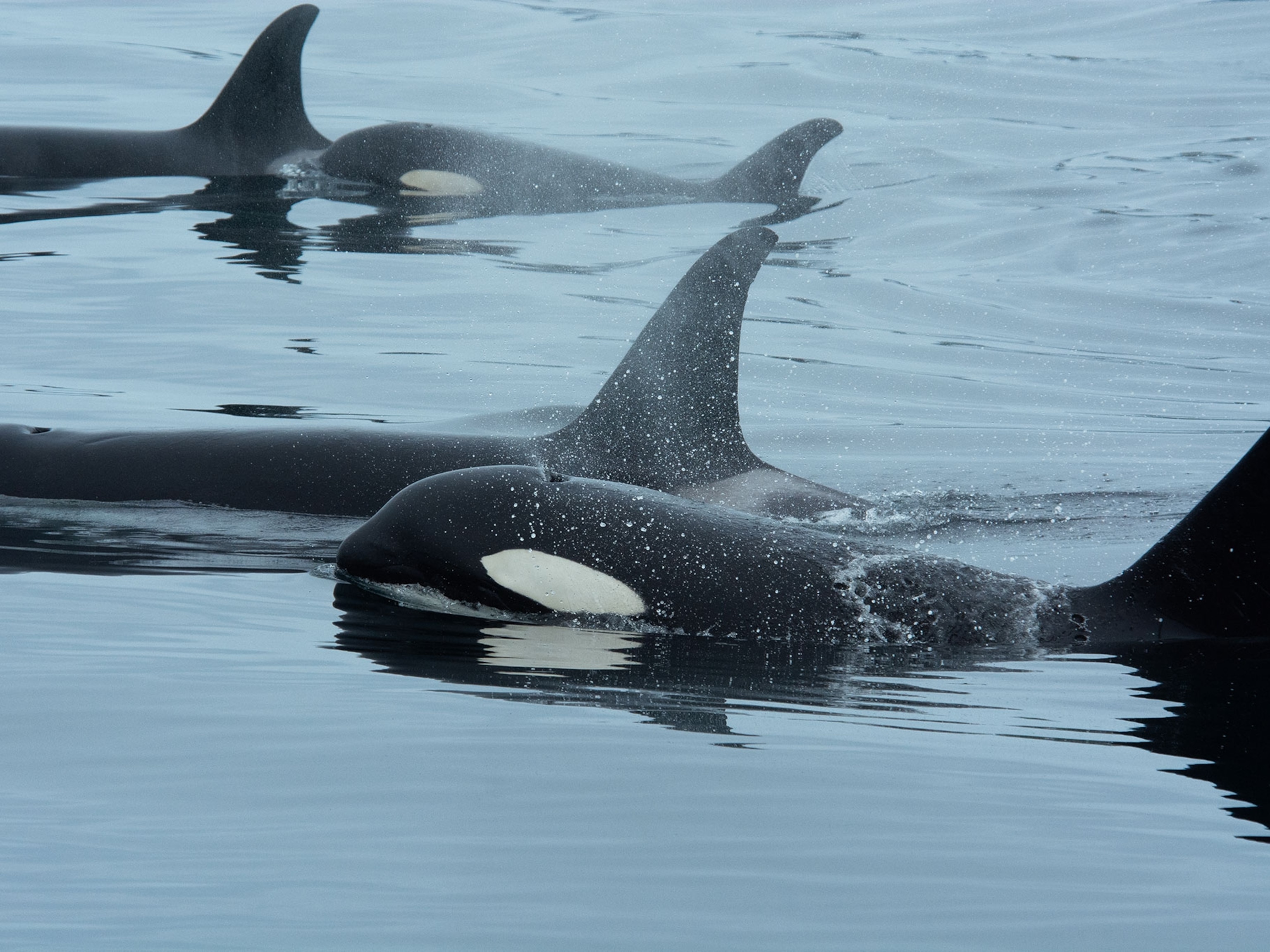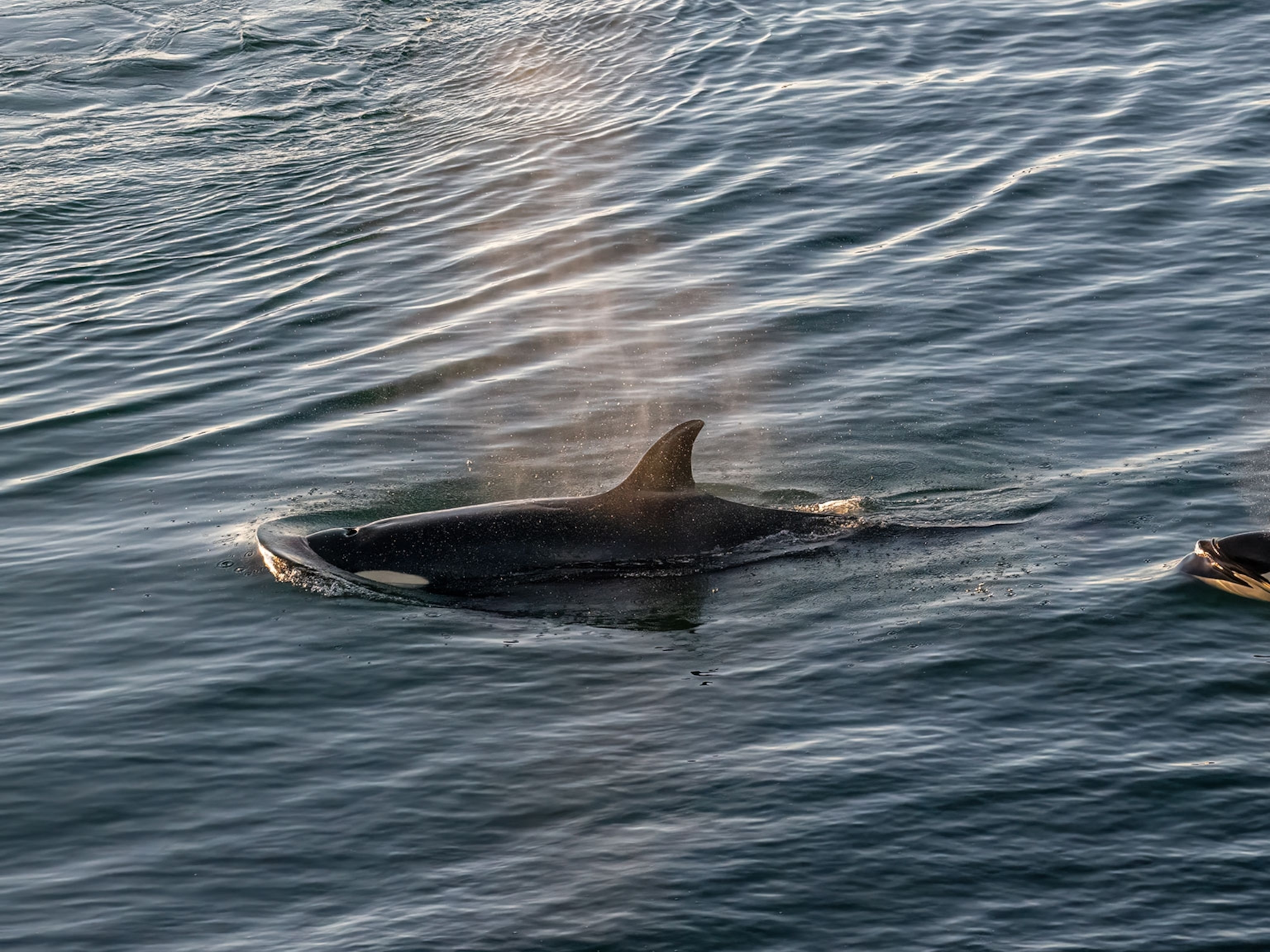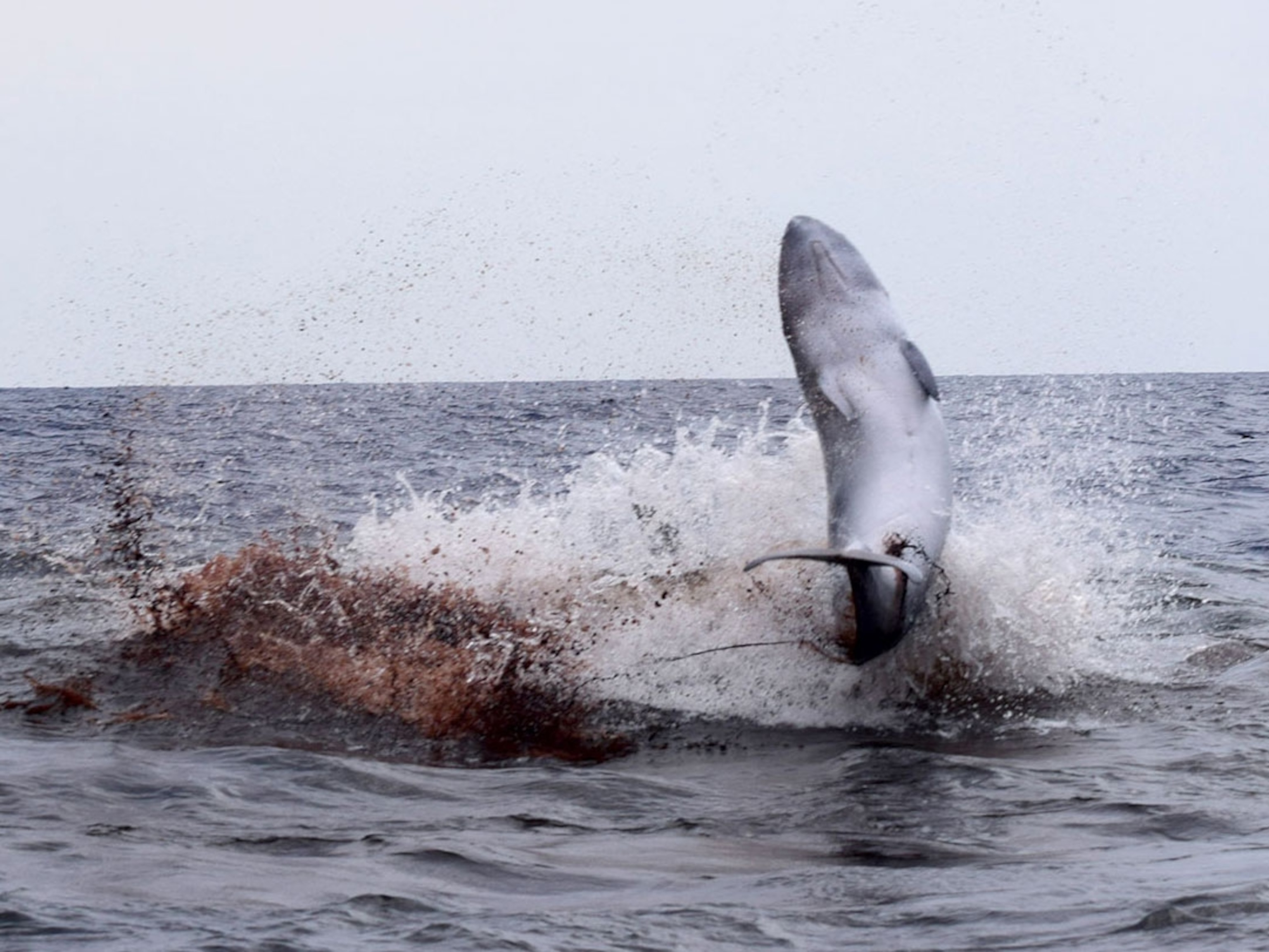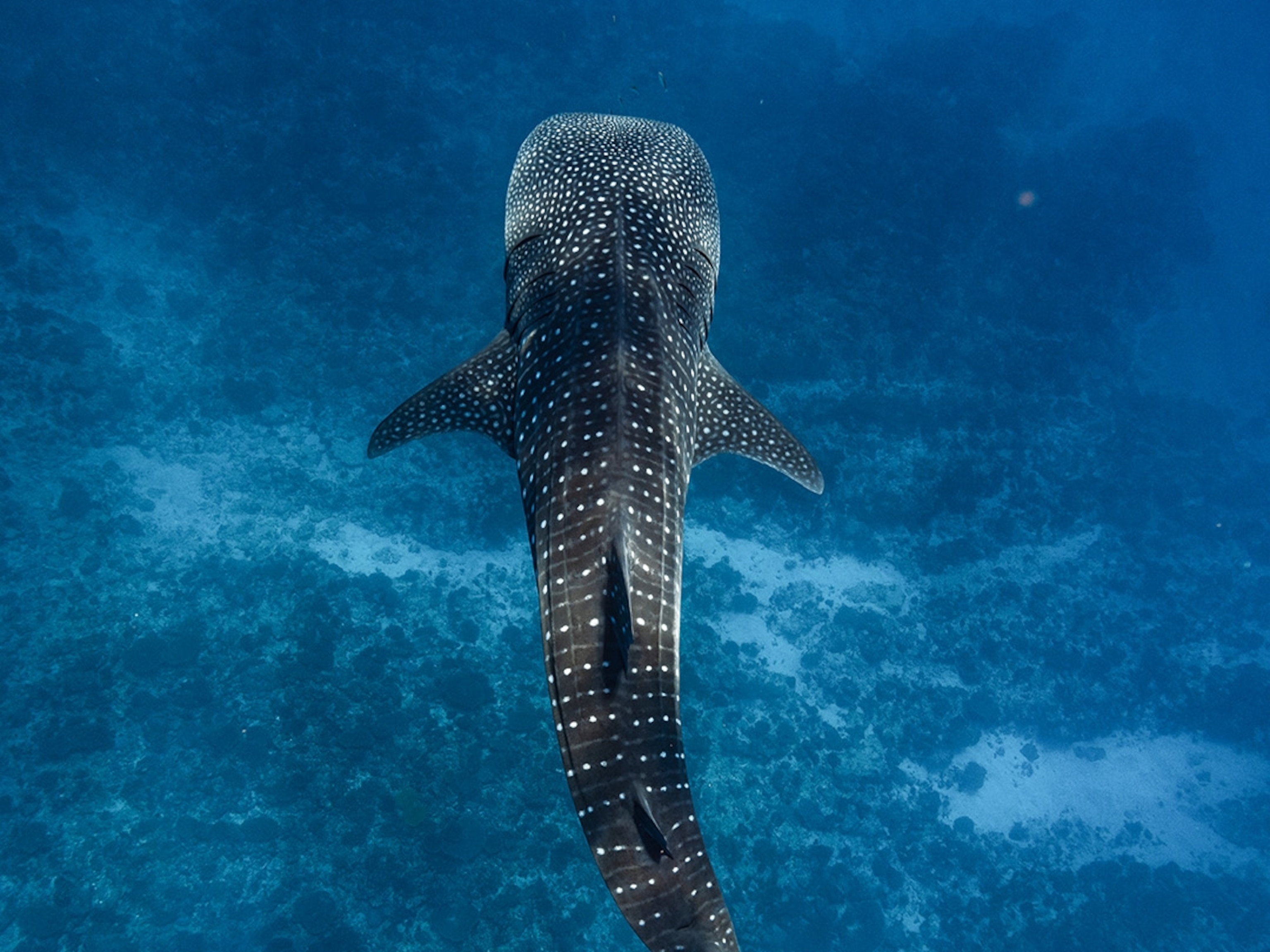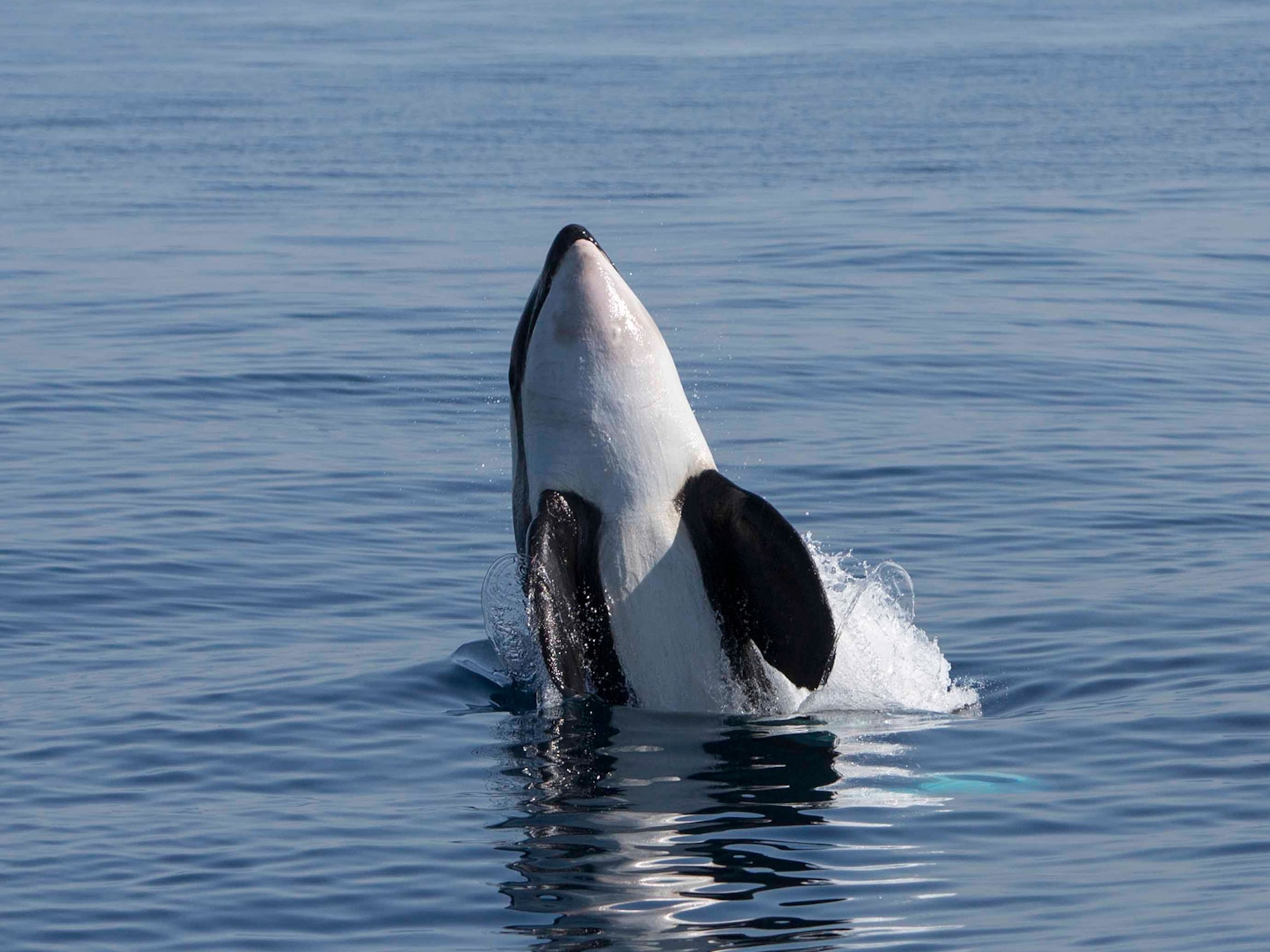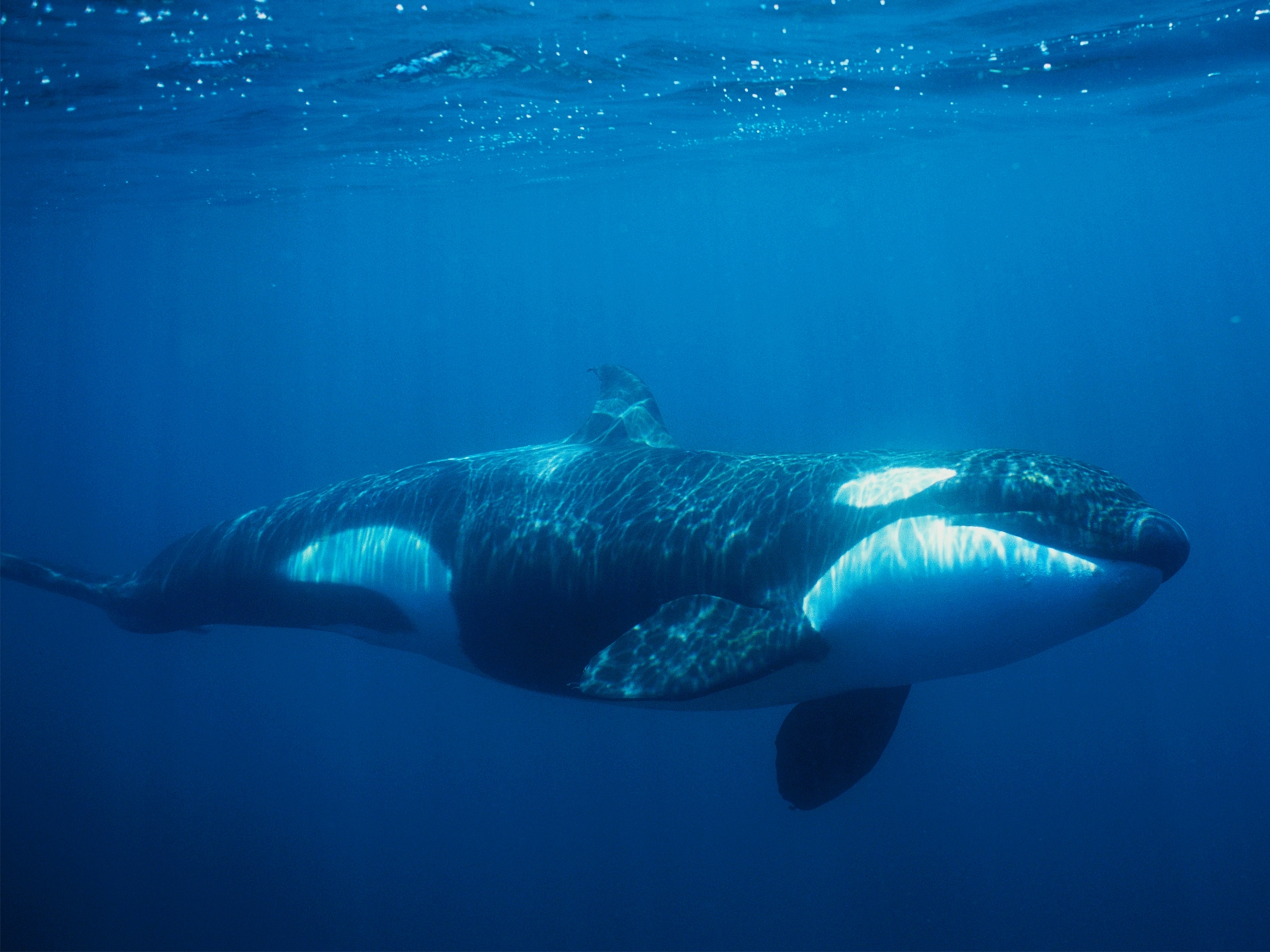
After Menopause, Female Killer Whales Help Pod Survive
Female killer whales that live long past their "child-bearing" days may be valuable sources of information for their groups.
Like people, female killer whales undergo menopause, living long after their baby-bearing days are done. But why people, and whales, do so is very much up for debate. Now, a new study says the reason—at least in killer whales—may have to do with who holds information critical for the group's survival.
Researchers found evidence that menopausal whales act as a kind of library of information, directing their groups or pods to where they can find food when fish are scarce. In this way, older females give their pods a greater chance at survival, according to the study, published March 5 in the journal Current Biology.
Females stop having calves when they're around 40 years old, but they can live to be 90. Males live to be about 50 years old.
"The pioneers of killer whale ecology have long felt that matriarchs serve as repositories of traditional ecological knowledge that can help these whales survive through years of low prey abundance," says whale biologist Rob Williams, a Pew Fellow in marine conservation who was not involved in the research, in an email.
"This study tests that theory and offers a compelling hint that whales, especially sons, follow the matriarch to find food."
Listening to Your Elders
Darren Croft, a behavioral ecologist at the University of Exeter in the U.K., and colleagues looked at southern resident killer whales—groups of about 80 animals that spend their time in the waters around Seattle, Washington, and subsist mainly on salmon.
The team examined observational data for southern resident killer whales taken since 1976 to determine if menopausal whales acted as leaders during group movements in and out of their foraging areas.
The researchers found that females were more likely to lead groups than males were, and that females over 35 years old tended to lead rather than younger females. Having a menopausal leader was even more likely during lean years with less salmon.
These results, taken together with those of a 2012 study that found menopausal mothers were good for the survival of their offspring, tell researchers how these older females benefit their sons and daughters, Croft says.
"A lot boils down to how the groups are structured," says Croft. For these resident females, the older they get, the more related they are to their groups. They've had more time to have babies that swell their pod's ranks, as opposed to a newly arrived female who might not have any sons or daughters in the group.
Therefore, it's more advantageous in an evolutionary sense for menopausal killer whales to stick around and help more of their relatives survive.
The value of elders is also reflected in human hunter-gatherer societies, Croft adds. They're the people who group members go to when they need advice on what to do during a drought, for example, or when they need to resolve a dispute, he says.
Ongoing Debate
Eric Ward, a quantitative ecologist with the U.S. National Marine Fisheries Service based in Seattle, is somewhat skeptical of the study's conclusions. "About five to six years ago, I was looking into some of these hypotheses with the same population, and found really not much benefit of older post-reproductive females," he said in an email.
Instead, menopause in killer whales could just be the result of getting older, Ward says.
"I think it's very safe to say that the jury is still out as to why some females-in populations of killer whales, humans, and other species—live long past [when] their reproductive life spans end," Ward adds.
Follow Jane J. Lee on Twitter.
